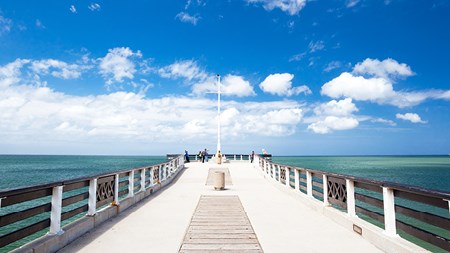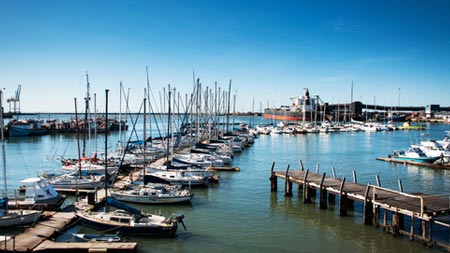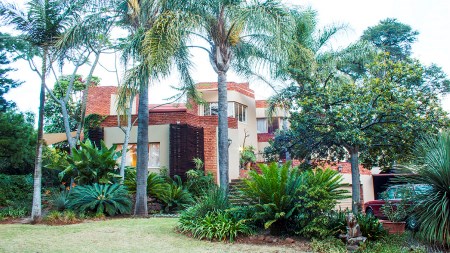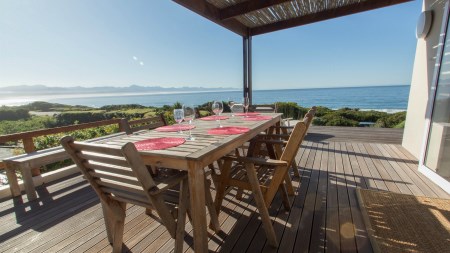Can Nelson Mandela Bay make a historical turnaround in uplifting its economic fortune?
Where people gather, cities inevitably take root. Over time, they tend to morph into something more which is usually brought about by the development of certain industries and/ or its people and growth in general. Cities are however, cyclical by nature. If certain drivers fall away or opportunities aren’t capitalised on, a city can run out of steam and fall behind. Such is the case with Port Elizabeth or Nelson Mandela Bay as it is now known.
History behind the ‘Ghost on the Coast’
Akin to many other South African cities, Nelson Mandela Bay has had a mixed past. Before it was formally established at the turn of the 19th century, various local tribes lived in the area. In later years, European, Cape Malay and various immigrant communities planted roots in the city. In 1962 forced removals began, the impact of which had long lasting ramifications which can still be seen to this day.
Before the gold and diamond rush which occurred ‘up-country’, Nelson Mandela Bay was one of South Africa’s most prominent commercial cities thanks largely to a robust wool, mohair and ostrich feather trade. Consequently, the city’s harbour became a bustling port. In more recent times Nelson Mandela Bay became a major car manufacturing hub which to date has largely dominated the local economy.
But Nelson Mandela Bay’s fortunes have ebbed again. The development of an Industrial Development Zone (IDZ) at Coega which was mooted to revitalise the local economy has yet to become a major economic catalyst despite being years in the making. The local car manufacturing industry has endured several crippling strikes, airport arrival numbers started to fall, investment dwindled and business in general began to taper off, prompting some to label the city the ‘Ghost on the Coast.’
Project Nelson Mandela Bay
A new non-profit initiative seeks to change all that. Dubbed ‘Project Nelson Mandela Bay’ or Project NMB, the initiative seeks to turn around the city’s fortunes. The initiative is largely being driven by a group of private citizens who have decided to take action rather than wait for the local municipality to step up to the plate.
The initiative is being coordinated in conjunction with local business and civil society and has some notable supporters including Mike Abel, chief executive partner and co-founder of M&C Saatchi Abel and Derek Watts of Carte Blanche fame. The initiative is headed by a steering committee, the members of which have full time jobs but who are prepared to give freely of their time in support of Project NMB.
The project has been organised into several key facets named ‘Safe City’, ‘Smart City iGems’, ‘Connected City’, ‘Clean City’, ’12 Active Months’ and the ‘Madiba Meander.’ Although described as an apolitical movement, Project NMB aims to work in support of municipal authorities and existing structures to expedite its goals.
Why get involved?
According to Project NMB, “Individuals and organisations partnering with Project NMB do so in order to contribute to the city’s legacy, doing their bit to make the change we want to see. Project NMB is not a CSI/CSR initiative but a logical business intervention to help boost the city’s economy, stabilise the job market, create new job opportunities, improve the city’s marketability and standing, attract much needed foreign direct investment, boost local pride in the city and improve the quality of life for generations to come.”
And there’s really no reason why Nelson Mandela Bay shouldn’t be great again. Indeed, as Abel says, Nelson Mandela Bay “has the bones of a great city.” It has excellent infrastructure, a good harbour, a variety of period architecture, quality educational institutes, great beaches, a warm ocean, great shopping venues, a malaria-free ‘Big 7’ reserve (think lion, leopard, rhino, elephant, buffalo, Southern Right Whales and Great White Sharks) and much more besides.
Affordable living
Property in the area is also affordably priced. According to Private Property, a typical three-bedroom house costs a mere R1,1m; the average flat/ apartment is currently priced at around R570 000 and a property within a complex will set you back around R833 000. As for rentals, a typical three-bedroom rental property currently costs approximately R9 950pm to rent in Nelson Mandela Bay.
All that’s needed now is a holistic, unifying thread to bring out the best in Nelson Mandela Bay. Project NMB could be just what the city needed.






